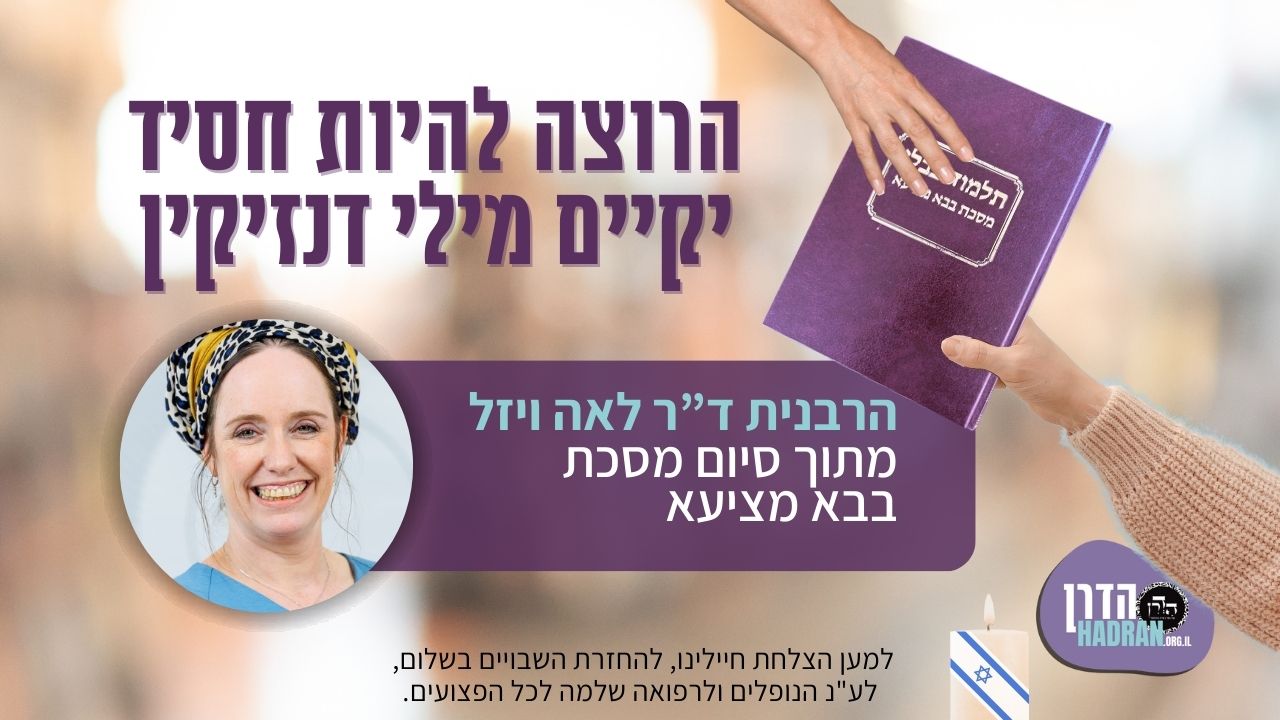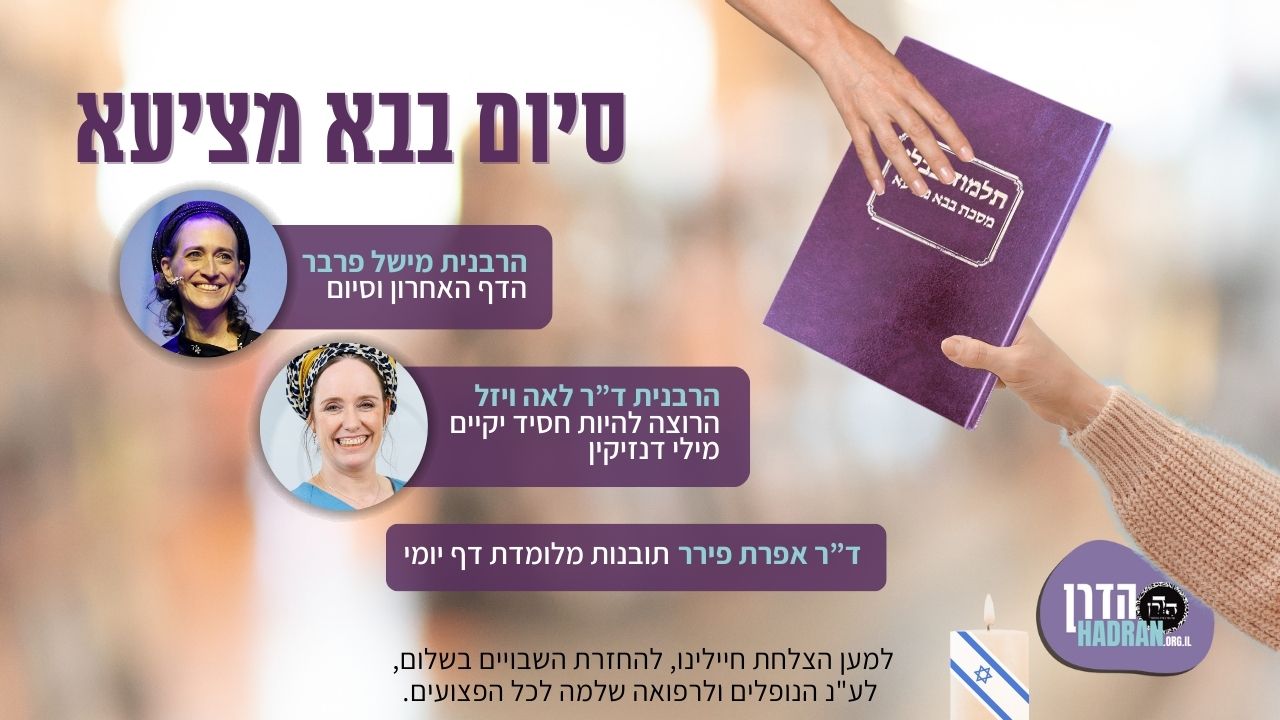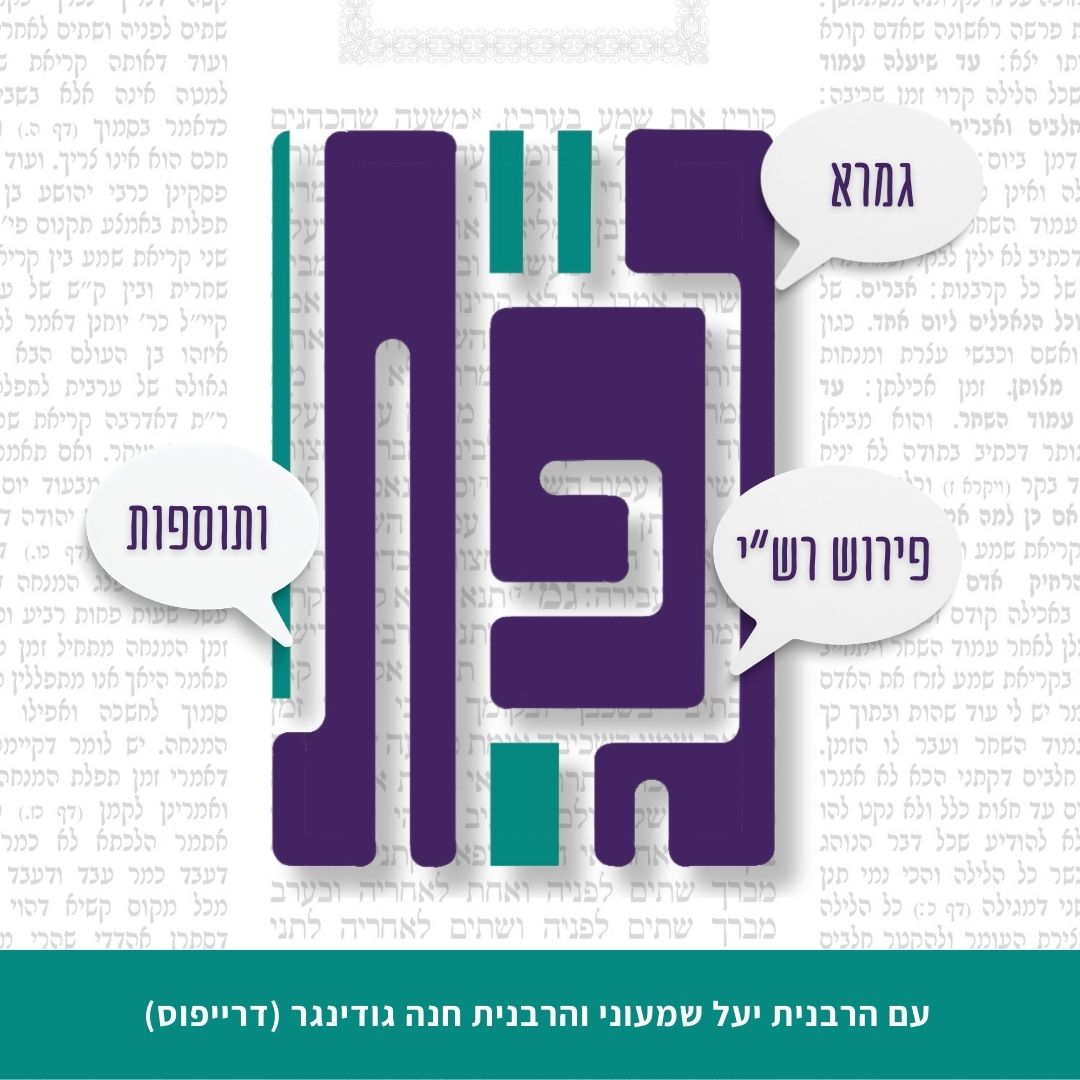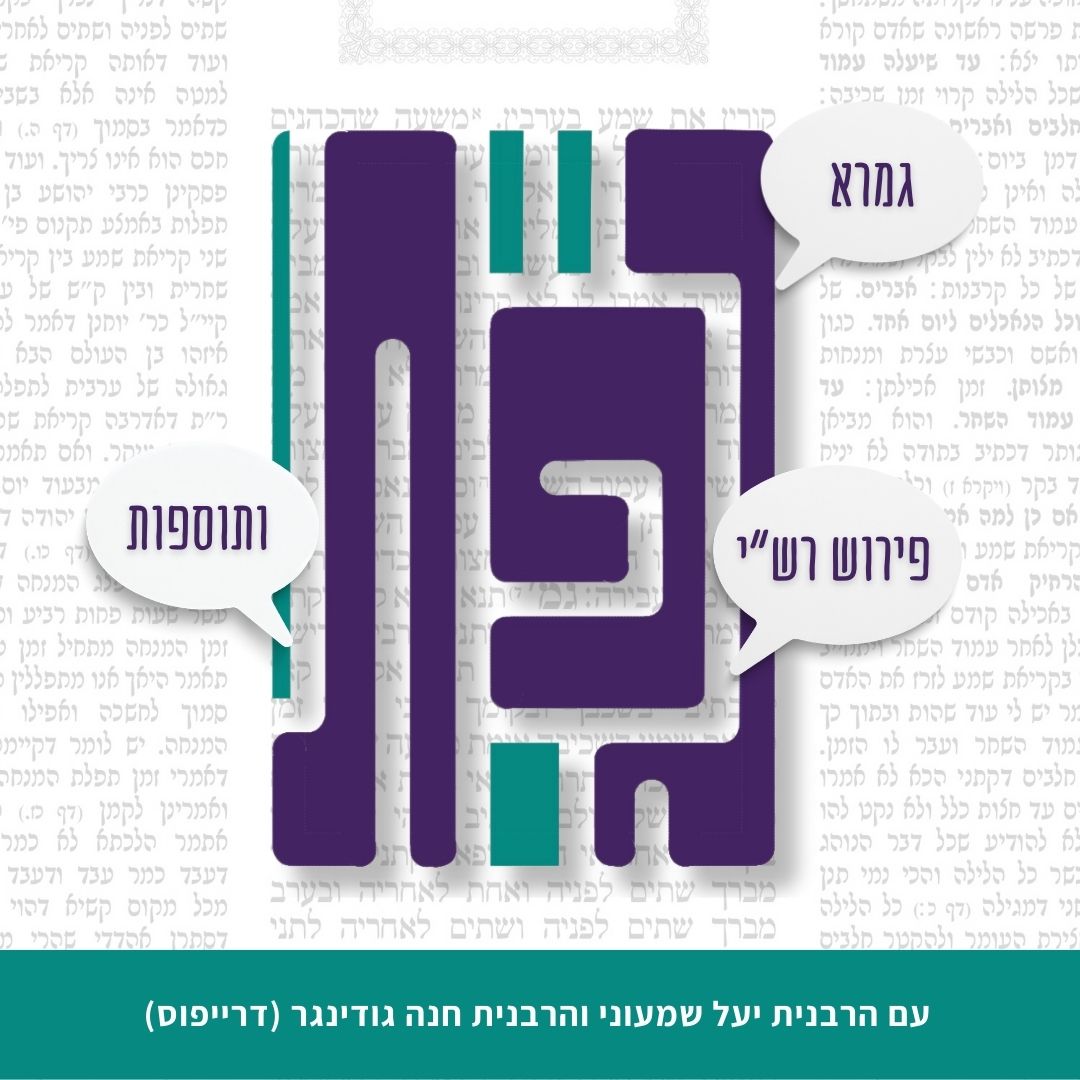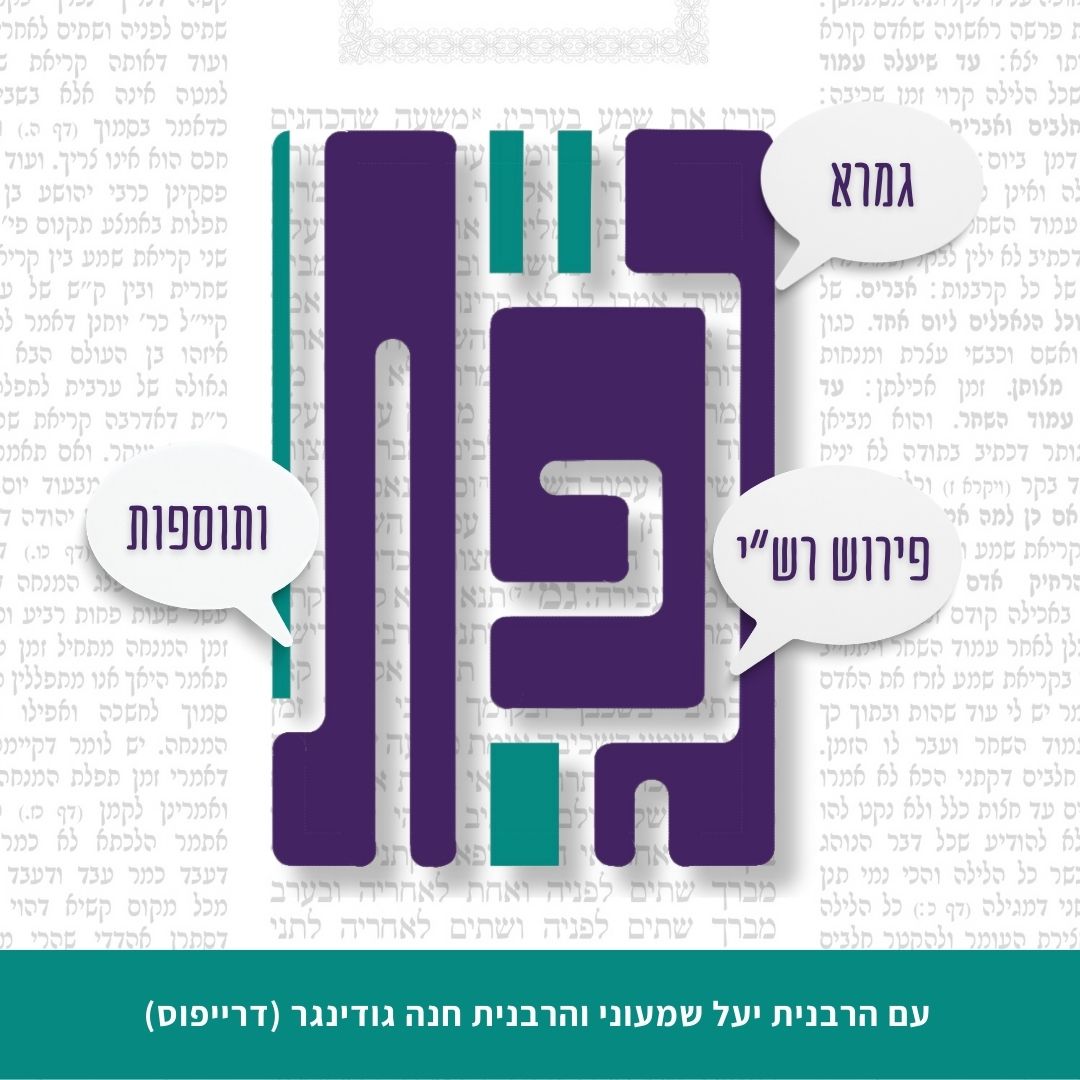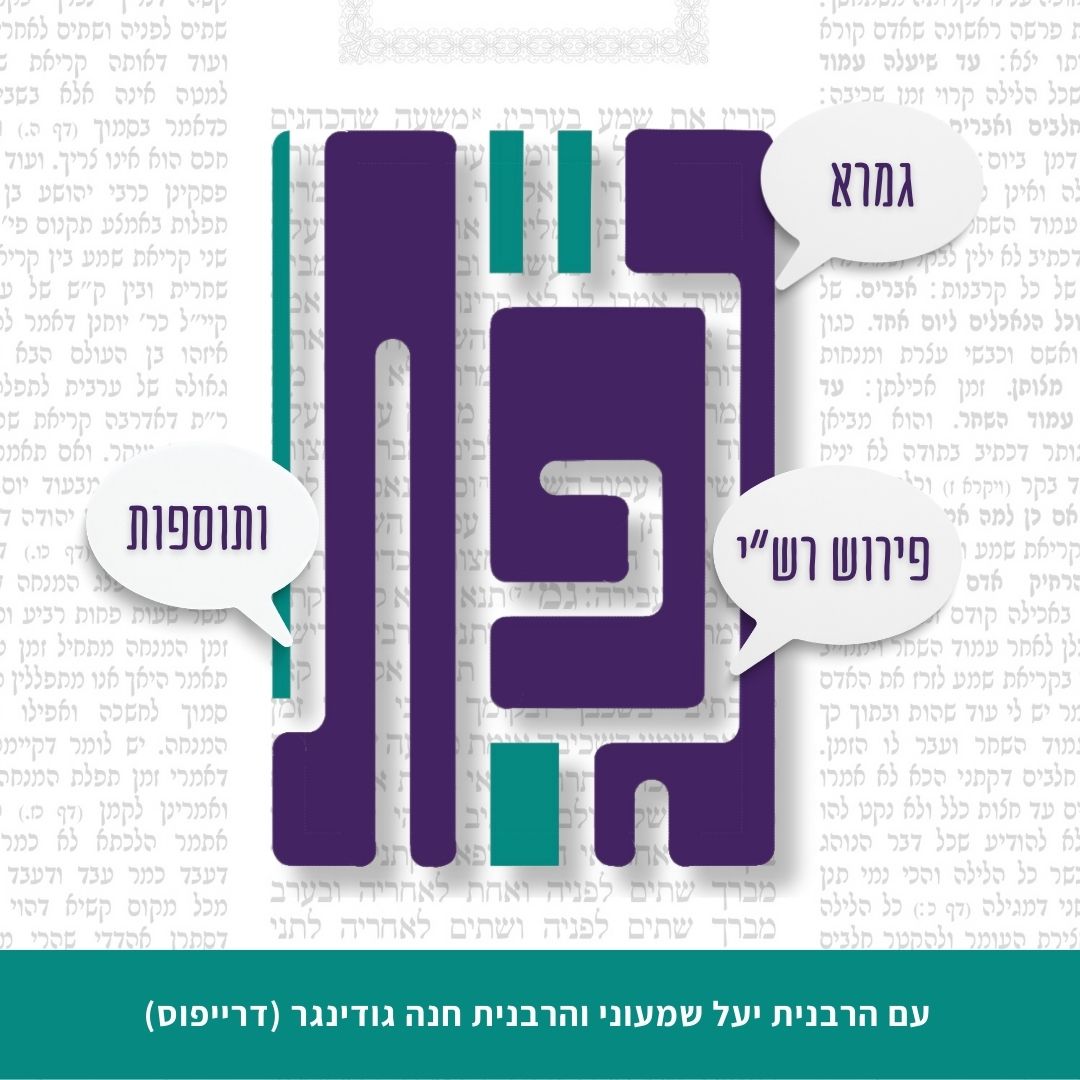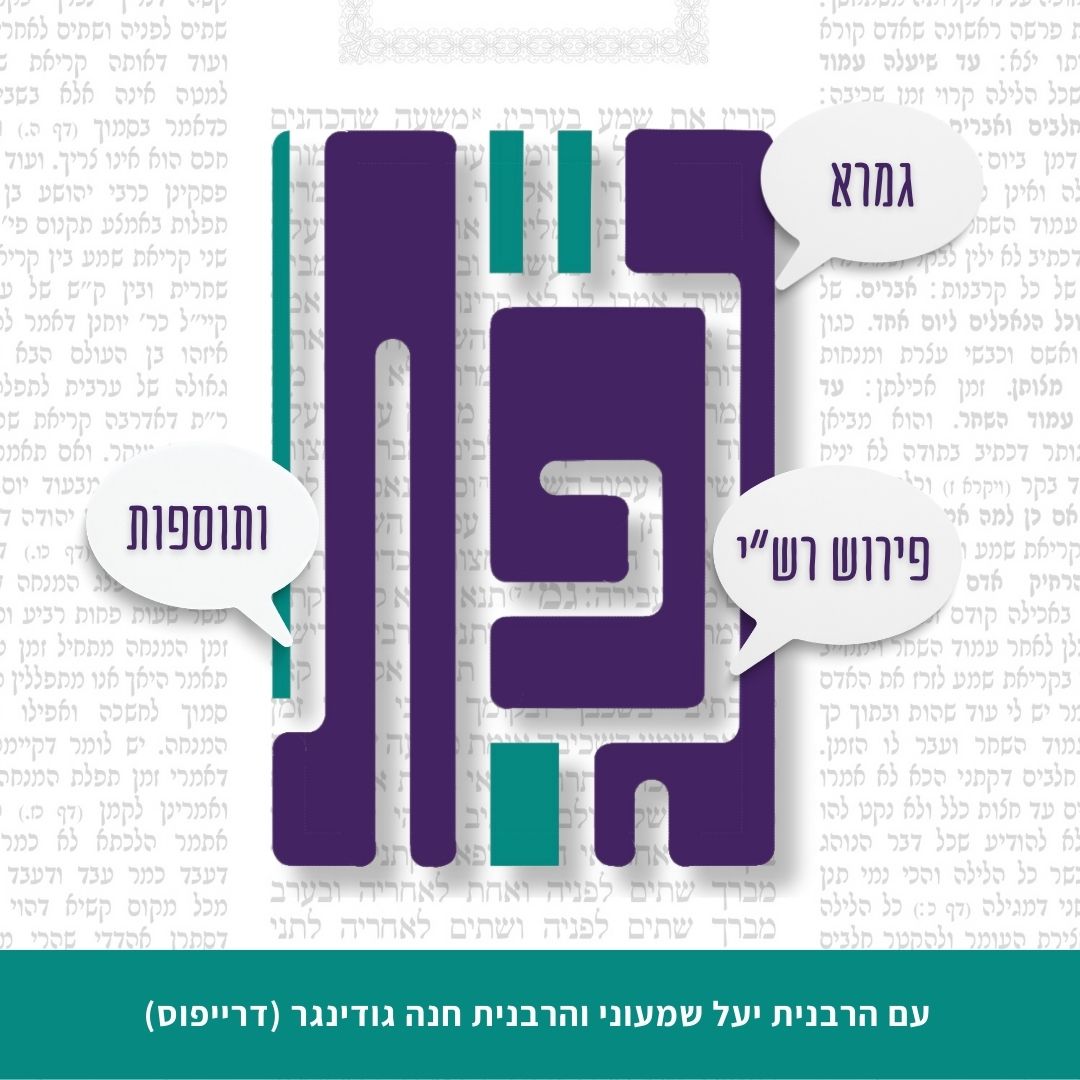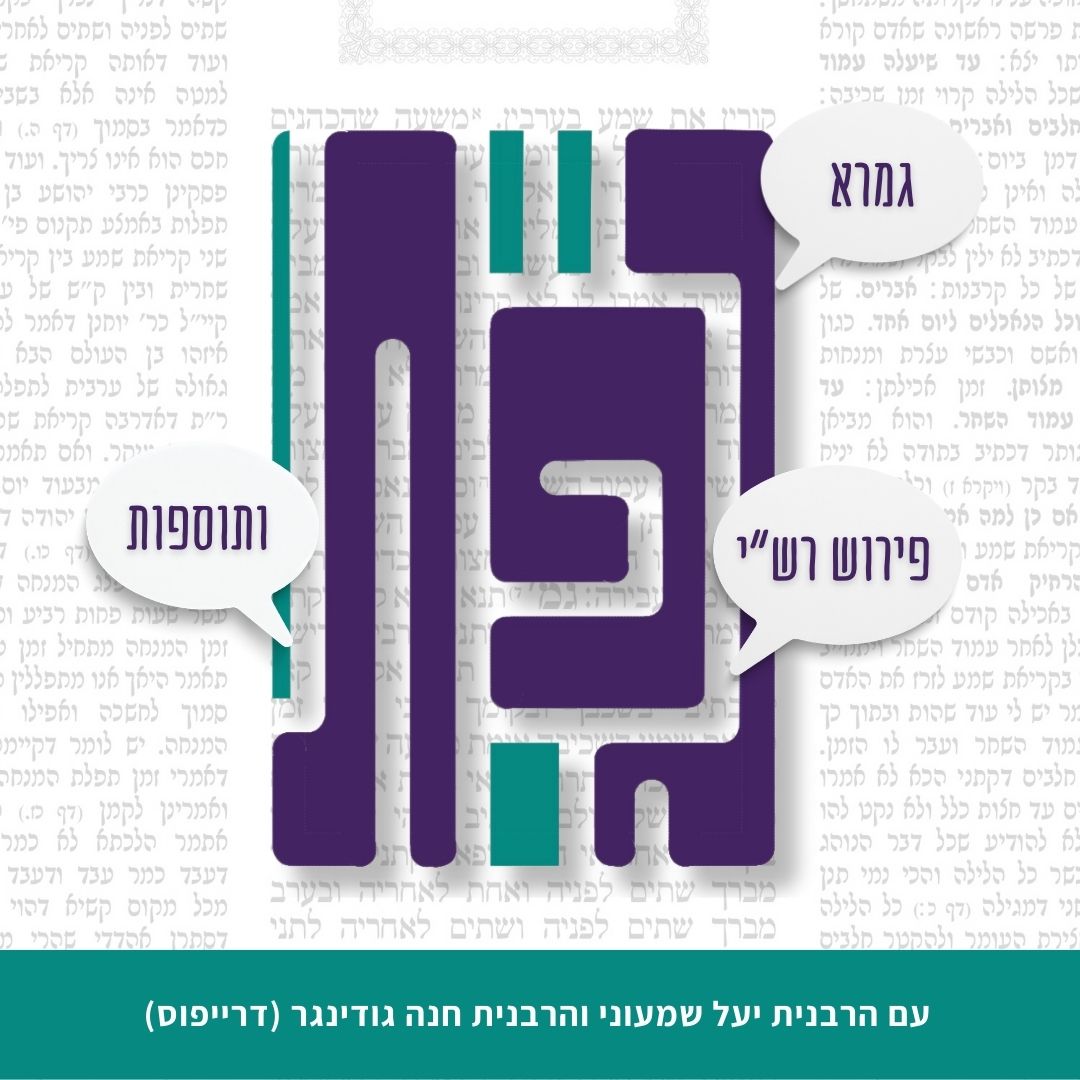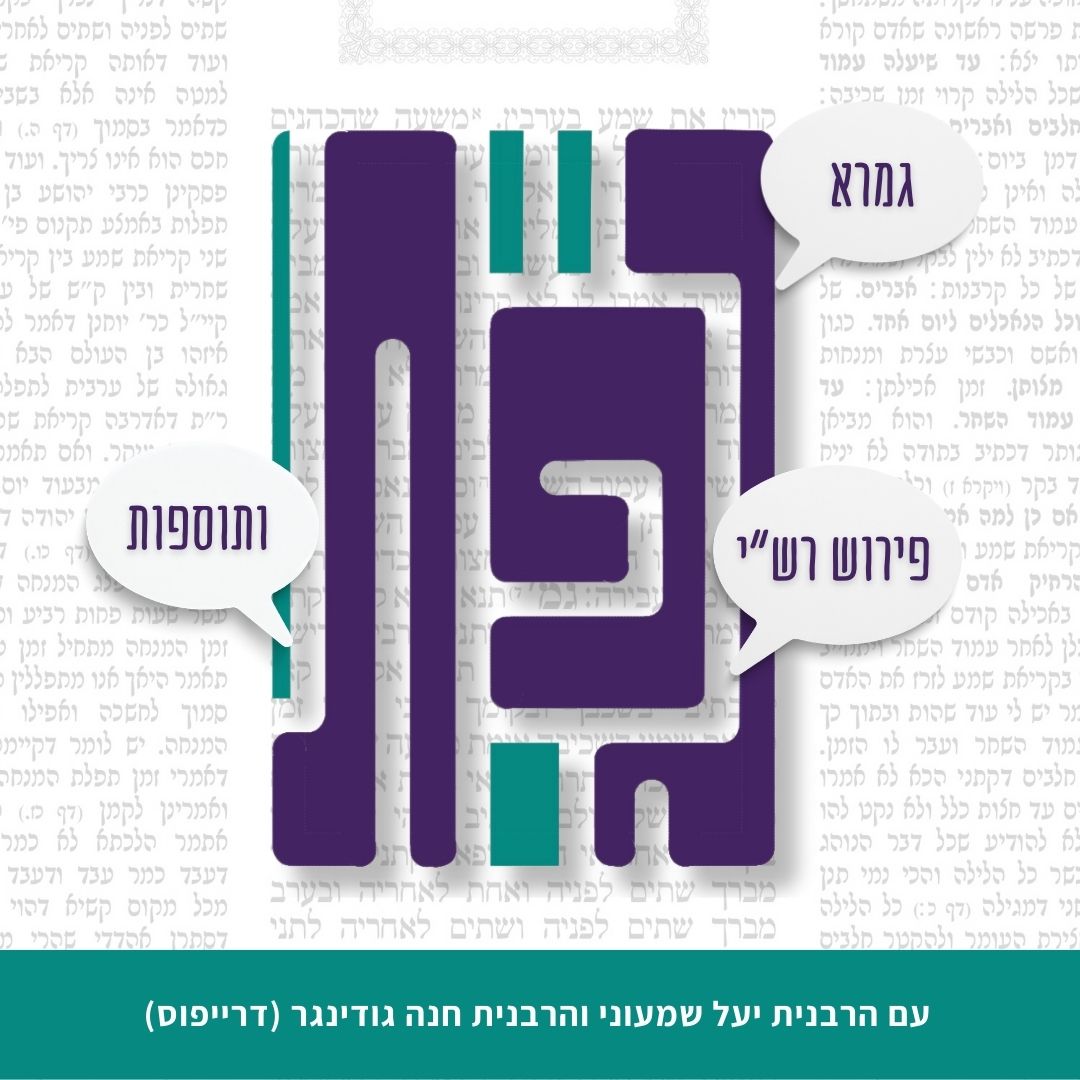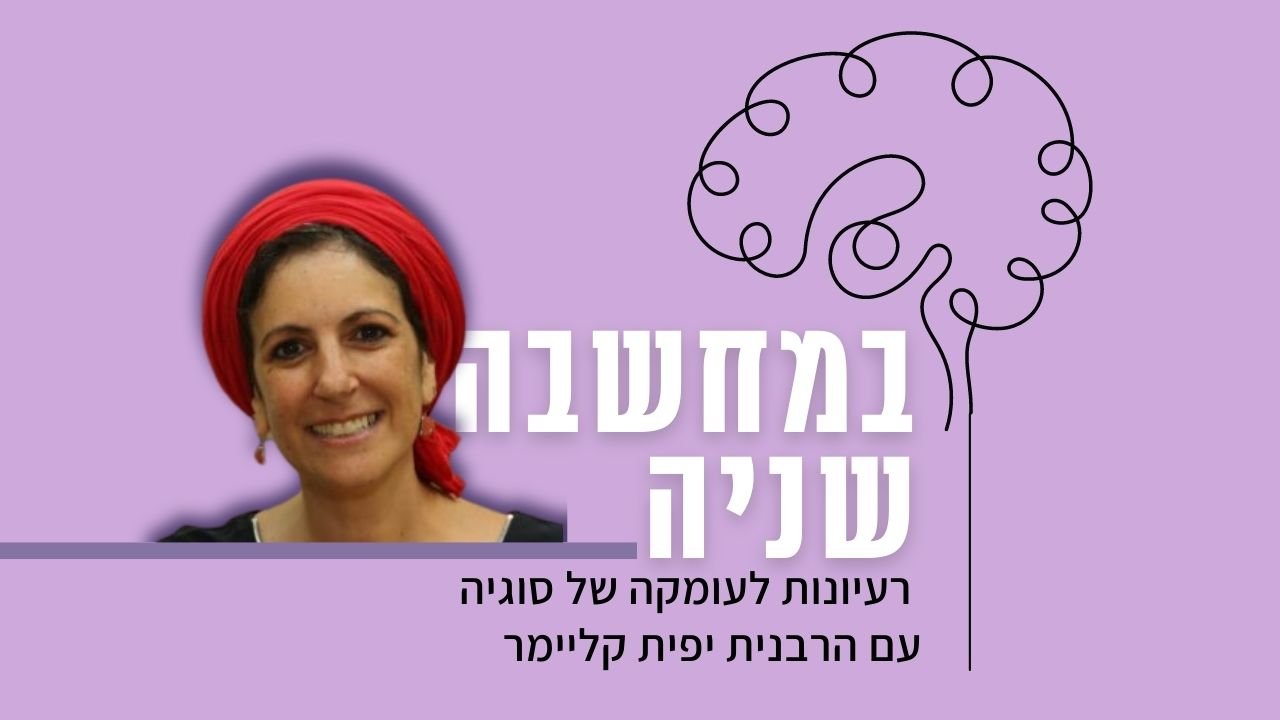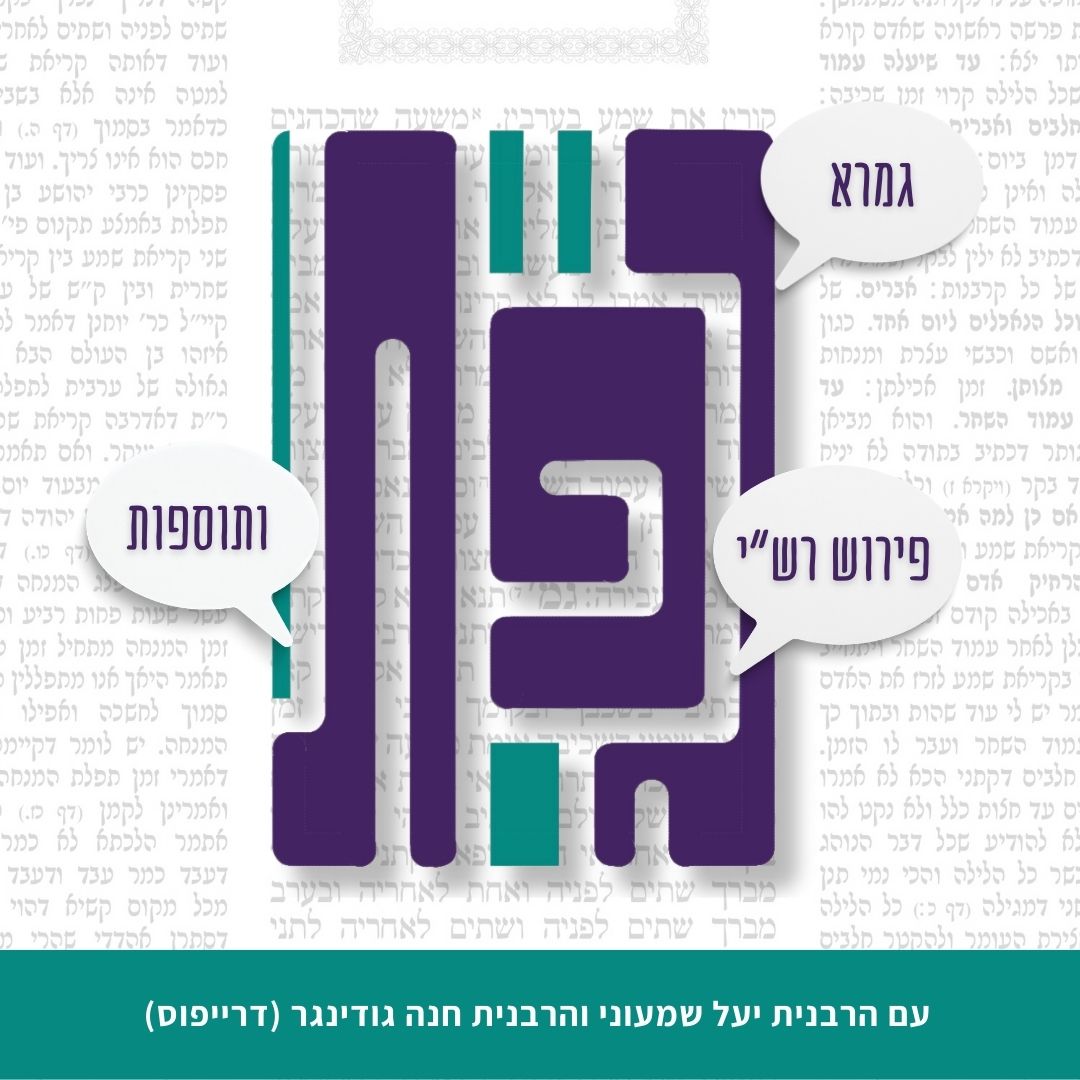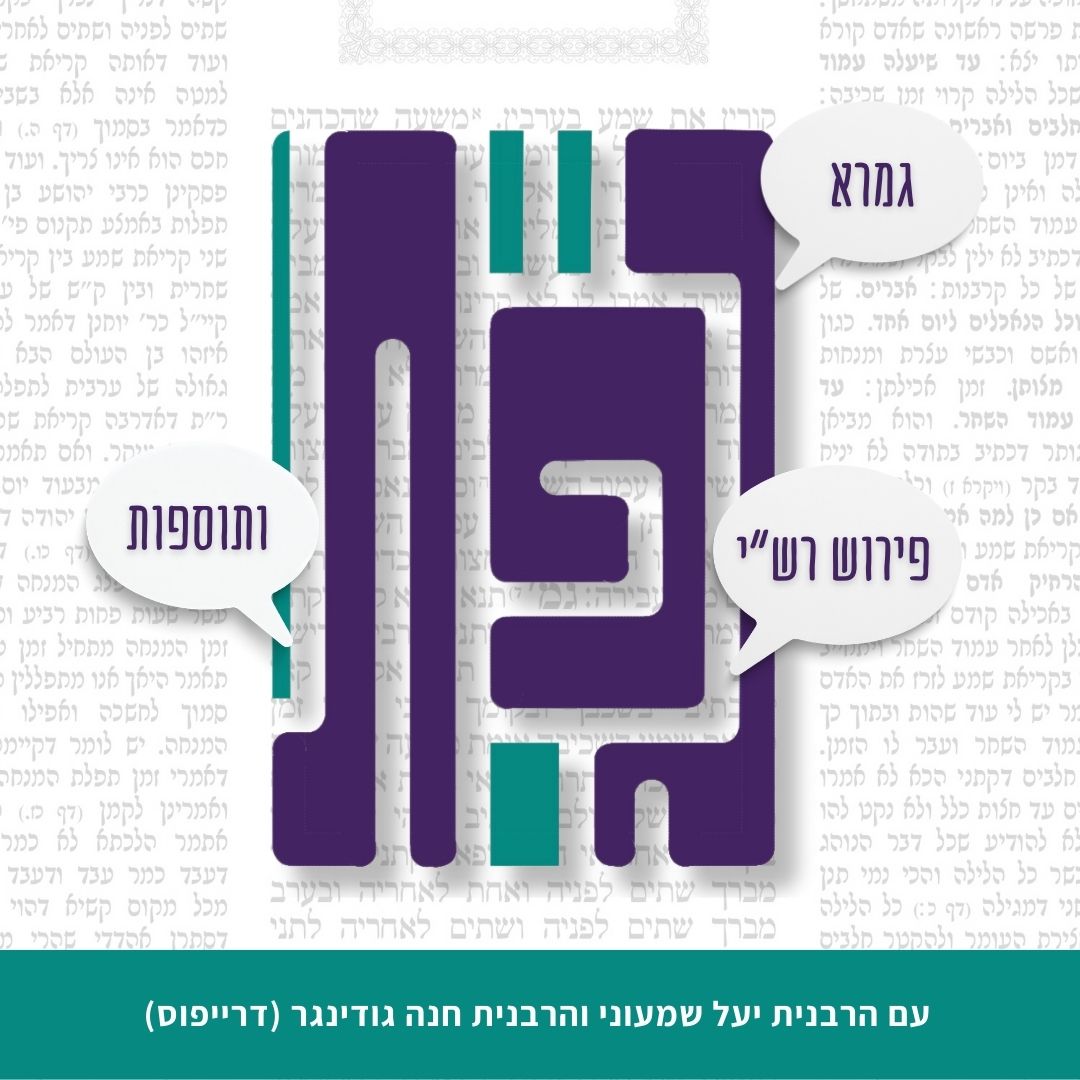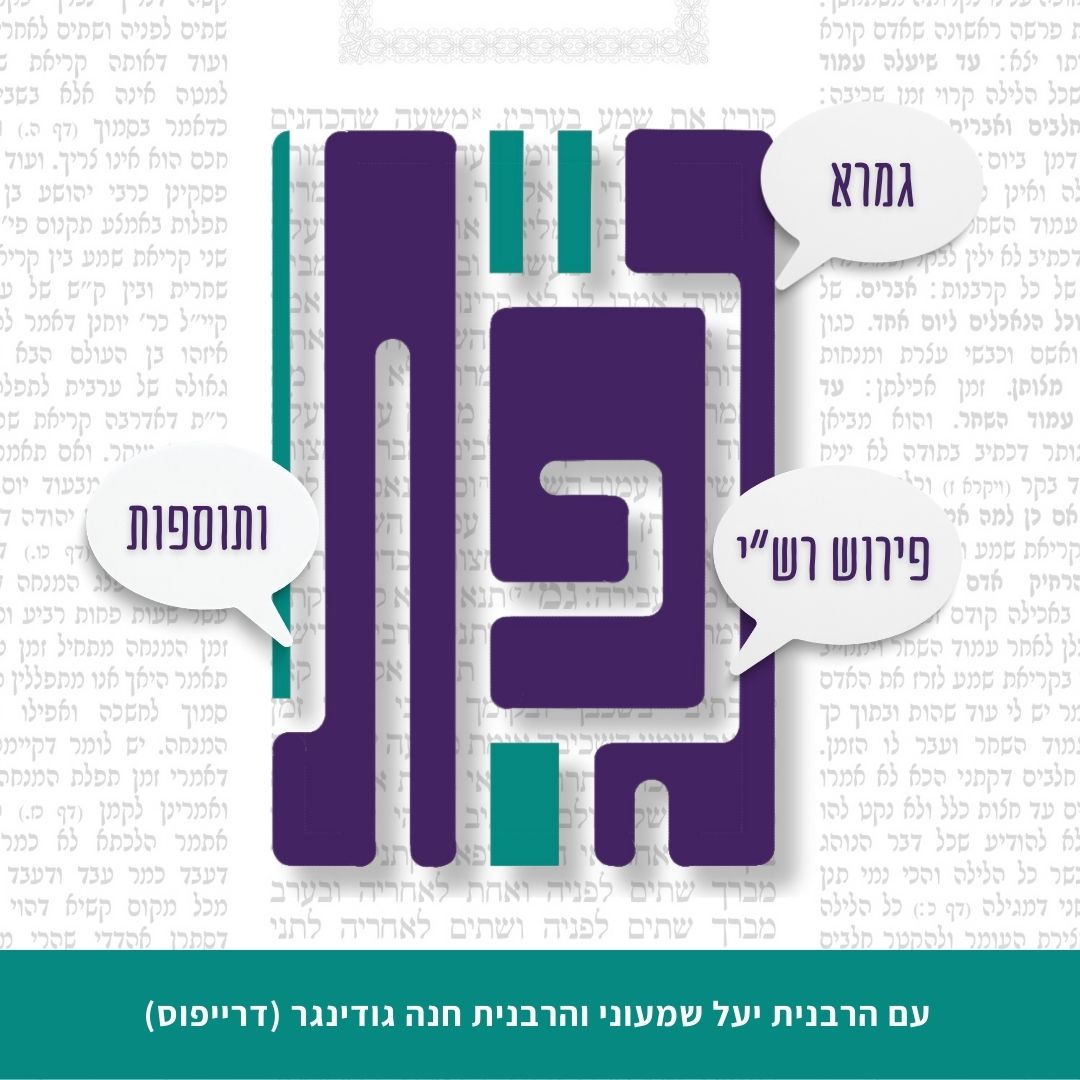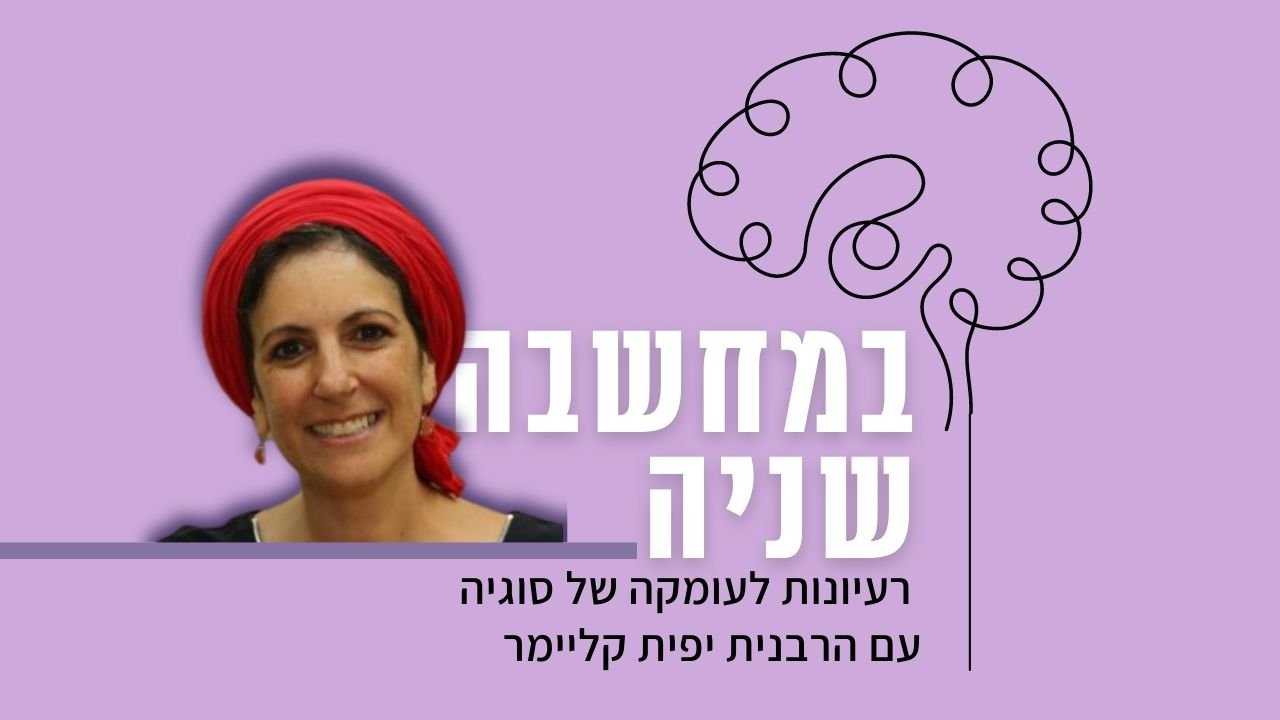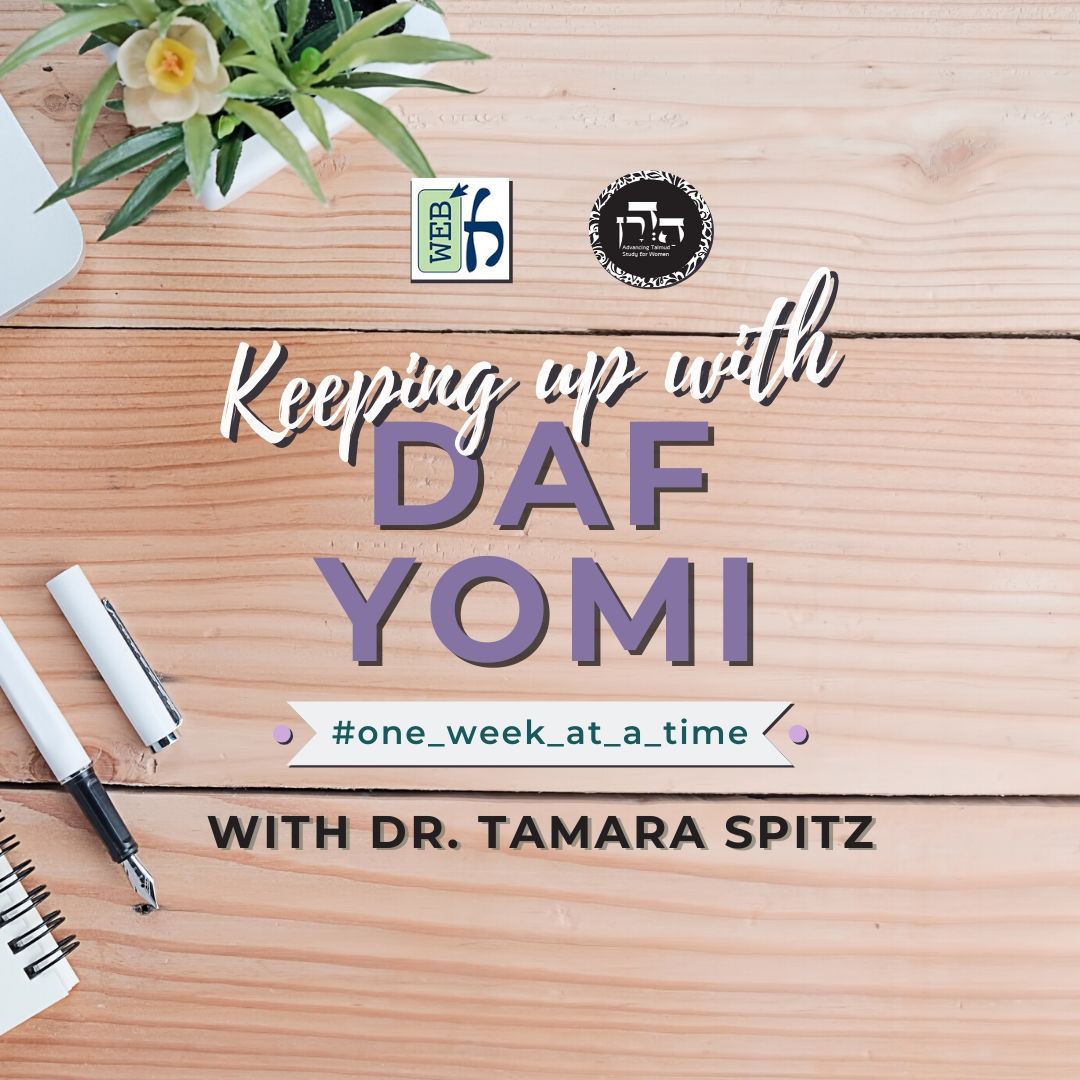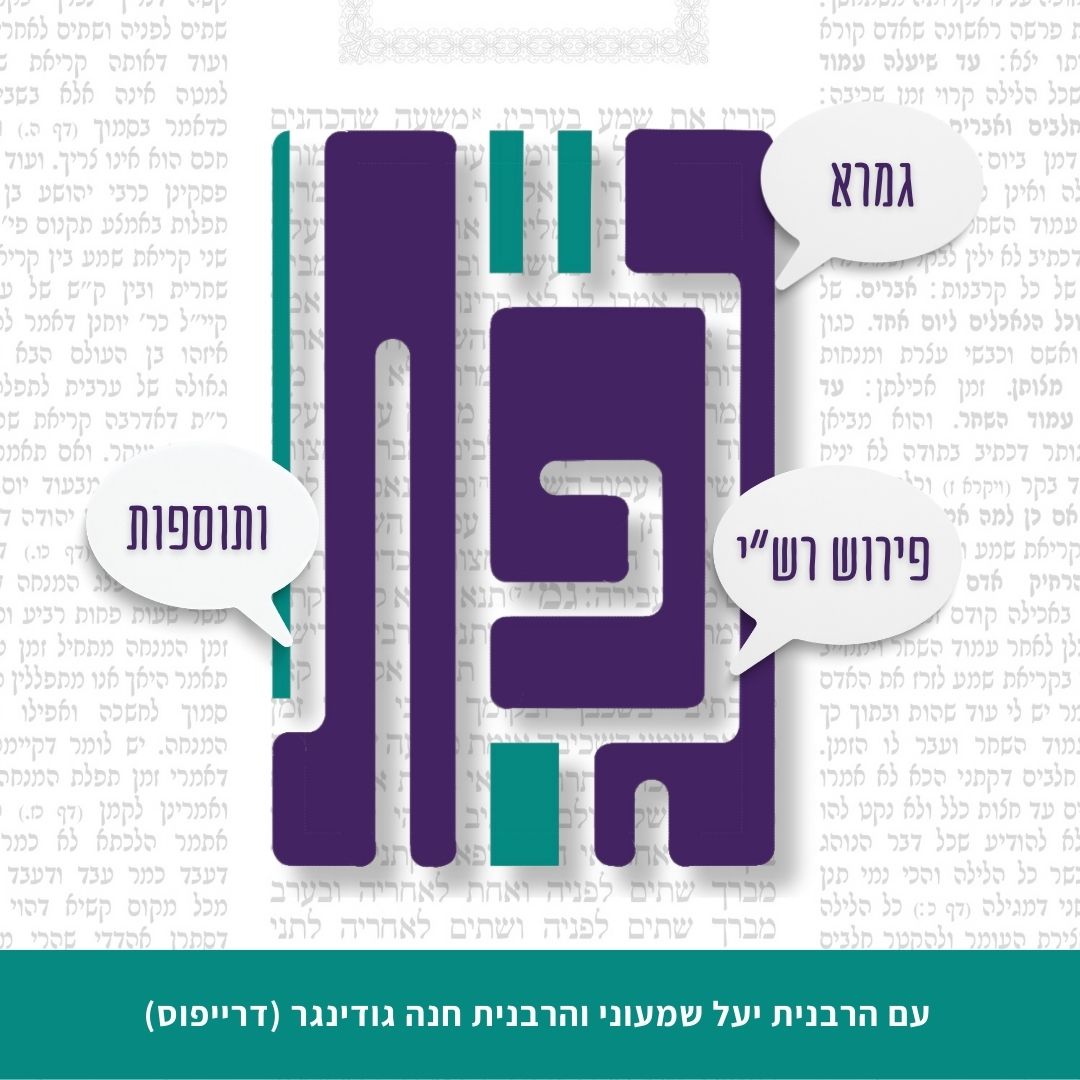בבא מציעא ח
דְּחַזְיָא לִקְטַנִּים.
This is because each party receives an item that has monetary value, as it is fit to be made into a garment for small children.
וְהָא דְּאָמַר רָבָא: אִם הָיְתָה טַלִּית מוּזְהֶבֶת – חוֹלְקִין, הָכִי נָמֵי דְּפָלְגִי לַהּ, הָא אַפְסְדוּהָ! הָא לָא קַשְׁיָא, דְּחַזְיָא לִבְנֵי מְלָכִים.
The Gemara asks: But as for that which Rava said, that if the garment was fashioned with gold thread they divide it, does that also mean that they divide the garment itself? By doing so they would ruin it. The Gemara answers: That is not difficult, as after the garment is divided it is fit to be made into a garment for the children of kings or wealthy people. Therefore, it is not ruined.
וְהָא דִּתְנַן: הָיוּ שְׁנַיִם רוֹכְבִין עַל גַּבֵּי בְּהֵמָה וְכוּ׳, הָכִי נָמֵי דְּפָלְגִי לַהּ? הָא אַפְסְדוּהָ! בִּשְׁלָמָא טְהוֹרָה – חַזְיָא לְבָשָׂר. אֶלָּא טְמֵאָה, הָא אַפְסְדוּהָ! אֶלָּא לִדְמֵי, הָכָא נָמֵי לִדְמֵי.
The Gemara asks: But with regard to that which we learned in the mishna (2a): If two people were sitting on an animal and each of them claims to own the entire animal, they each take an oath and divide the animal, does that also mean that they divide the animal itself? By doing so they would ruin it. Granted, if it is a kosher animal it is fit to be slaughtered and divided between them for the meat. But if it is a non-kosher animal, slaughtering it and dividing the carcass would ruin it and render it worthless. Rather, clearly they divide its monetary value. Here too, in the other cases where the ruling is to divide the item, it means that the litigants divide its monetary value and not the item itself.
אָמַר רָמֵי בַּר חָמָא: זֹאת אוֹמֶרֶת, הַמַּגְבִּיהַּ מְצִיאָה לַחֲבֵירוֹ – קָנָה חֲבֵירוֹ.
§ Based on an inference from the mishna on 2a, Rami bar Ḥama says: That is to say: In a case of one who performs an act of acquisition by lifting a found item on behalf of another, the other person, i.e., the latter, acquires ownership of the item.
דְּאִי סָלְקָא דַּעְתָּךְ לֹא קָנָה חֲבֵירוֹ, תֵּיעָשֶׂה זוֹ כְּמִי שֶׁמּוּנַּחַת עַל גַּבֵּי קַרְקַע, וְזוֹ כְּמִי שֶׁמּוּנַּחַת עַל גַּבֵּי קַרְקַע, וְלֹא יִקְנֶה לֹא זֶה וְלֹא זֶה. אֶלָּא לָאו שְׁמַע מִינַּהּ: הַמַּגְבִּיהַּ מְצִיאָה לַחֲבֵירוֹ – קָנָה חֲבֵירוֹ.
Rami bar Ḥama explains his inference: As, if it enters your mind that if one lifts a found item for another the other does not acquire the item, this garment has not been acquired by either of the two litigants, as each prevents the other’s acquisition. If that were the case, this part of the garment, held by one of them, would be considered as though it is still lying on the ground, and that part of the garment, held by the other one, would be considered as though it is still lying on the ground, and neither this one nor that one acquires it; if a third party takes it, it is his. Rather, isn’t it correct to conclude from it that in a case of one who performs an act of acquisition by lifting a found item on behalf of another, the other person acquires the item?
אָמַר רָבָא, לְעוֹלָם אֵימָא לָךְ: הַמַּגְבִּיהַּ מְצִיאָה לַחֲבֵירוֹ – לֹא קָנָה חֲבֵירוֹ. וְהָכָא הַיְינוּ טַעְמָא: מִגּוֹ דְּזָכֵי לְנַפְשֵׁיהּ זָכֵי נָמֵי לְחַבְרֵיהּ.
Rava said: This is not a proof, as actually I could say to you that in a case of one who performs an act of acquisition by lifting a found item solely on behalf of another, the other person does not acquire the item. And here in the mishna, this is the reason the two litigants acquire the garment: Since each of the litigants acquires part of the garment for himself, he also acquires the other part for the other one.
תִּדַּע שֶׁאִילּוּ אָמַר לִשְׁלוּחוֹ: ״צֵא וּגְנוֹב לִי״, וְגָנַב – פָּטוּר. וְשׁוּתָּפִין שֶׁגָּנְבוּ – חַיָּיבִין. מַאי טַעְמָא? לָאו מִשּׁוּם דְּאָמְרִינַן: מִגּוֹ דְּזָכֵי לְנַפְשֵׁיהּ זָכֵי נָמֵי לְחַבְרֵיהּ. שְׁמַע מִינַּהּ.
Rava adds: Know that one who acquires an item for himself can acquire part of it for another, as, if someone says to his agent: Go out and steal an item for me, and the agent stole that item, the one who sent him is exempt from liability, due to the principle that there is no agency for sin; but partners who stole an item together are both liable even if only one of them actually lifted the item. What is the reason that they are both liable? Is it not because we say that since the one who lifted the item acquires part of it for himself, he also acquires the other part for the other one, his partner? The Gemara concludes: Learn from it that this principle is correct.
אָמַר רָבָא, הַשְׁתָּא דְּאָמְרַתְּ אָמְרִינַן מִגּוֹ: חֵרֵשׁ וּפִקֵּחַ שֶׁהִגְבִּיהוּ מְצִיאָה, מִתּוֹךְ שֶׁקָּנָה חֵרֵשׁ – קָנָה פִּקֵּחַ.
Rava said in continuation of his statement: Now that you said that we say: Since [miggo] one acquires part of an item for himself he can also acquire the other part for another, another halakha can be derived: In a case of a deaf-mute and a mentally competent person who lifted a found item simultaneously, since the deaf-mute acquires his part of the item, the mentally competent person also acquires his portion.
בִּשְׁלָמָא חֵרֵשׁ קָנָה – דְּקָא מַגְבַּהּ לֵיהּ בֶּן דַּעַת. אֶלָּא פִּקֵּחַ בְּמַאי קָנָה?
The Gemara asks: Granted, the deaf-mute acquires his portion of the found item, as a mentally competent person lifted it for him; since the mentally competent person acquired his own part, he also acquired the other part for the deaf-mute. But how does the mentally competent person acquire his part? He needs the deaf-mute to acquire it for him, and a deaf-mute cannot acquire an item for another.
אֶלָּא אֵימָא: חֵרֵשׁ – קָנָה, פִּקֵּחַ – לָא קָנָה. וּמַאי מִגּוֹ? מִגּוֹ דִּשְׁנֵי חֵרְשִׁין בְּעָלְמָא קָנוּ, הַאי נָמֵי קָנֵי.
Rather, say Rava’s statement differently: The deaf-mute acquires his part, but the mentally competent person does not acquire his part. And what is the principle of miggo from which Rava derives this halakha? It is not the principle that one who acquires a found item for himself can acquire part of it for another as well, but rather: Since [miggo] in general two deaf-mutes who pick up an item simultaneously acquire it, in this case too, the deaf-mute acquires it, even though the mentally competent person does not acquire it.
הַאי מַאי? אִם תִּמְצָא לוֹמַר הַמַּגְבִּיהַּ מְצִיאָה לַחֲבֵירוֹ קָנָה חֲבֵירוֹ, הָנֵי מִילֵּי הֵיכָא דְּקָא מַגְבַּהּ לֵיהּ אַדַּעְתָּא דְּחַבְרֵיהּ. הַאי אַדַּעְתָּא דִּידֵיהּ קָא מַגְבַּהּ לֵיהּ, אִיהוּ לָא קָנֵי – לְאַחֲרִינֵי מַקְנֵי?!
The Gemara asks: What is this derivation? Even if you say that in a case of one who performs an act of acquisition by lifting a found item on behalf of another, the other person acquires it, as Rami bar Ḥama says, this statement applies only where he lifts it with the intention of having the other person acquire the item. But in this case, the mentally competent person lifted the item with the intention of acquiring it for himself; he had no intention of acquiring it for the deaf-mute. If he does not acquire the item for himself, does he acquire it for others?
אֶלָּא אֵימָא: מִתּוֹךְ שֶׁלֹּא קָנָה פִּקֵּחַ – לֹא קָנָה חֵרֵשׁ.
Rather, say that since the mentally competent person does not acquire any part of the found item, the deaf-mute does not acquire it either.
וְכִי תֵּימָא, מַאי שְׁנָא מִשְּׁנֵי חֵרְשִׁין דְּעָלְמָא – הָתָם תַּקִּינוּ לְהוּ רַבָּנַן דְּלָא אָתֵי לְאִנְּצוֹיֵי. הָכָא מֵימָר אָמַר: פִּקֵּחַ לָא קָנֵי, אֲנָא אֶקְנֵי?
And if you would say: In what way is this case different from the general case of an item that was found by two deaf-mutes, in which they both acquire it? The answer is that there, in that case, the Sages instituted an ordinance for them that they both acquire the item so that they will not come to quarrel with others who want to take the item from them due to the fact that a deaf-mute lacks the halakhic ability to acquire the item. Here, in the case of the deaf-mute and the mentally competent person, the deaf-mute says to himself: If even the mentally competent person does not acquire the item, can I acquire it? Therefore, in that case, he will not quarrel if others take the item from him.
אֲמַר לֵיהּ רַב אַחָא בְּרֵיהּ דְּרַב אַדָּא לְרַב אָשֵׁי: דִּיּוּקֵיהּ דְּרָמֵי בַּר חָמָא מֵהֵיכָא? אִי נֵימָא מֵרֵישָׁא ״שְׁנַיִם אוֹחֲזִין בְּטַלִּית״, הָתָם הַאי קָאָמַר ״כּוּלָּהּ שֶׁלִּי וַאֲנָא אַגְּבַּהְתַּהּ כּוּלַּהּ״, וְהַאי אָמַר ״כּוּלָּהּ שֶׁלִּי וַאֲנָא אַגְּבַּהְתַּהּ כּוּלַּהּ״.
Rav Aḥa, son of Rav Adda, said to Rav Ashi: From where in the mishna is Rami bar Ḥama’s inference drawn? If we say that he infers it from the first clause of the mishna, i.e., the case of two people holding a garment, isn’t the case there one in which this one says: All of it is mine, and I lifted the entire garment; and that one says: All of it is mine, and I lifted the entire garment? How can the halakha where one acquires an item for another be inferred from that case?
אֶלָּא מֵהָא דְּקָתָנֵי ״זֶה אוֹמֵר כּוּלָּהּ שֶׁלִּי וְזֶה אוֹמֵר כּוּלָּהּ שֶׁלִּי״ הָא תּוּ לְמָה לִי? אֶלָּא מִמִּשְׁנָה יְתֵירָה שְׁמַע מִינַּהּ: הַמַּגְבִּיהַּ מְצִיאָה לַחֲבֵירוֹ – קָנָה חֲבֵירוֹ.
Rather, he infers it from that which is taught later in the mishna: This one says all of it is mine and that one says all of it is mine. Why do I need this case as well? The first case, where each one says: I found it, is sufficient. Rather, learn from the superfluous case in the mishna that even if they lifted it simultaneously, they divide it and a third party has no right to take it, as in a case of one who performs an act of acquisition by lifting a found item on behalf of another, the other person acquires the item.
וְהָא אוֹקֵימְנָא רֵישָׁא בִּמְצִיאָה, וְסֵיפָא בְּמִקָּח וּמִמְכָּר!
The Gemara asks: But that clause in the mishna is not superfluous; didn’t we already establish (2a) that the first clause is referring to a dispute over a found item, and the latter clause is referring to a case of buying and selling, where each party claims that he is the one who bought the item from its seller?
אֶלָּא מִסֵּיפָא: ״זֶה אוֹמֵר כּוּלָּהּ שֶׁלִּי וְזֶה אוֹמֵר חֶצְיָהּ שֶׁלִּי״, הָא תּוּ לְמָה לִי? אֶלָּא מִמִּשְׁנָה יְתֵירָה שְׁמַע מִינַּהּ: הַמַּגְבִּיהַּ מְצִיאָה לַחֲבֵירוֹ – קָנָה חֲבֵירוֹ.
Rather, Rami bar Ḥama infers his ruling from the latter clause of the mishna, i.e., the case where this one says all of it is mine and that one says half of it is mine. Why do I need this case as well? What does it add to the previous cases? Rather, learn from this superfluous case in the mishna that in a case of one who performs an act of acquisition by lifting a found item on behalf of another, the other person acquires the item.
וּמִמַּאי דְּבִמְצִיאָה? דִּלְמָא בְּמִקָּח וּמִמְכָּר?
The Gemara asks: And from where is it inferred that this clause is referring to the case of a found item? Perhaps it is referring to a case of buying and selling.
וְכִי תֵּימָא: אִי בְּמִקָּח וּמִמְכָּר מַאי לְמֵימְרָא? אִיצְטְרִיךְ, סָלְקָא דַּעְתָּךְ אָמֵינָא הַאי דְּקָאָמַר ״חֶצְיָהּ שֶׁלִּי״ לֶהֱוֵי כְּמֵשִׁיב אֲבֵידָה וְלִיפְּטַר. קָמַשְׁמַע לַן דְּהַאי אִיעָרוֹמֵי קָא מַעֲרִים. סָבַר: אִי אָמֵינָא ״כּוּלָּהּ שֶׁלִּי״, בָּעֵינָא אִשְׁתְּבוֹעֵי, אֵימָא הָכִי, דְּאֶהְוֵי כְּמֵשִׁיב אֲבֵידָה וְאִיפְּטַר!
And if you would say: If it were referring to a case of buying and selling, what would be the purpose of stating it, as it adds no novel ruling? One could answer that it was necessary to teach this additional case, as otherwise it might enter your mind to say that the one who says: Half of it is mine, should be considered the equivalent of one returning a lost item; he could have claimed that the garment was entirely his, and instead he conceded half of it to the other party and consequently he should be exempt from taking an oath. To counter this, the mishna teaches us that he is not exempt, as perhaps this person is employing artifice. Perhaps he is thinking: If I say that all of it is mine I will need to take an oath. I will state this claim, that half of it is mine, as I will thereby be considered the equivalent of one returning a lost item, and I will be exempt from taking an oath. Therefore, this clause is not superfluous; it teaches that this litigant is not considered the equivalent of one returning a lost item.
אֶלָּא מֵהָא, הָיוּ שְׁנַיִם רוֹכְבִין עַל גַּבֵּי בְּהֵמָה, הָא תּוּ לְמָה לִי? אֶלָּא מִמִּשְׁנָה יְתֵירָה שְׁמַע מִינַּהּ: הַמַּגְבִּיהַּ מְצִיאָה לַחֲבֵירוֹ – קָנָה חֲבֵירוֹ.
Rather, Rami bar Ḥama infers his ruling from this clause: If two people were sitting on an animal, and each of them claims that it is his, each of them takes an oath and they divide the value of the animal. Why do I need this case as well? It teaches no novel halakha. Rather, learn from this superfluous clause in the mishna that in a case of one who performs an act of acquisition by lifting a found item on behalf of another, the other person acquires the item.
וְדִלְמָא, הָא קָמַשְׁמַע לַן דְּרוֹכֵב נָמֵי קָנֵי!
The Gemara asks: But perhaps this mishna teaches us that one who sits on an animal also acquires it, even though he has not caused the animal to move.
אֶלָּא מִסֵּיפָא: בִּזְמַן שֶׁהֵן מוֹדִין אוֹ שֶׁיֵּשׁ לָהֶן עֵדִים – חוֹלְקִין בְּלֹא שְׁבוּעָה. בְּמַאי? אִי בְּמִקָּח וּמִמְכָּר, צְרִיכָא לְמֵימַר?! אֶלָּא לָאו בִּמְצִיאָה, וּשְׁמַע מִינַּהּ הַמַּגְבִּיהַּ מְצִיאָה לַחֲבֵירוֹ קָנָה חֲבֵירוֹ.
Rather, Rami bar Ḥama inferred his ruling from the last clause in the mishna: When they each admit to the validity of the other’s claim or when they have witnesses attesting to their claims, they divide it without taking an oath. To what case is the mishna referring? If it is referring to a case of buying and selling, does it need to be said? Rather, is it not referring to a found item? Accordingly, the reason they divide the item is that they knowingly lifted it together, and they intended to acquire it for both of them. And learn from it that in a case of one who performs an act of acquisition by lifting a found item on behalf of another, the other person acquires the item.
וְרָבָא אָמַר לָךְ: מִגּוֹ דְּזָכֵי לְנַפְשֵׁיהּ זָכֵי נָמֵי לְחַבְרֵיהּ.
The Gemara comments: And Rava said to you that this clause is based on a different principle: When one acquires an item, since he acquires it for himself he can also acquire part of it for another person.
הָיוּ שְׁנַיִם רוֹכְבִין. אָמַר רַב יוֹסֵף, אָמַר לִי רַב יְהוּדָה:
§ The mishna teaches: If two people were sitting on an animal, or one was sitting on the animal and the other one was leading it, and each claims ownership of the animal, they must each take an oath and they divide it. Rav Yosef said: Rav Yehuda said to me:
שְׁמַעִית מִינֵּיהּ דְּמָר שְׁמוּאֵל תַּרְתֵּי: רָכוּב וּמַנְהִיג, חַד קָנֵי וְחַד לָא קָנֵי. וְלָא יָדַעְנָא הֵי מִינַּיְיהוּ.
I heard two halakhot from Master Shmuel, one halakha with regard to one who sits in a riding position on an animal, and the other halakha with regard to one who leads an animal. With regard to one case I heard that he thereby acquires the animal, and with regard to the other one I heard that he does not acquire the animal. But I do not know which halakha applies to which of them.
הֵיכִי דָמֵי? אִילֵּימָא רָכוּב לְחוֹדֵיהּ וּמַנְהִיג לְחוֹדֵיהּ – מַנְהִיג לְחוֹדֵיהּ מִי אִיכָּא מַאן דְּאָמַר לָא קָנֵי? אֶלָּא אִי אִיכָּא לְמֵימַר דְּלָא קָנֵי – רָכוּב הוּא דְּאִיכָּא לְמֵימַר.
The Gemara asks: What are the circumstances? If we say that this is referring to one who sits in a riding position alone and to one who leads alone, is there anyone who says that one who leads an animal alone does not acquire it? Pulling an item, or leading an animal, is a classic mode of acquisition (see Kiddushin 25b). Rather, if there is a case where it could be said that one does not acquire the animal, it is obviously in the case of one who sits in a riding position that it could be said. Therefore, why was Rav Yehuda uncertain?
אֶלָּא רָכוּב בִּמְקוֹם מַנְהִיג אִיבַּעְיָא לֵיהּ. מַאי: רָכוּב עָדִיף – דְּהָא תָּפֵיס בַּהּ, אוֹ דִלְמָא מַנְהִיג עָדִיף – דְּאָזְלָא מֵחֲמָתֵיהּ?
The Gemara answers: Rather, his dilemma was with regard to a case where one sits in a riding position on the animal while another leads it. What is the halakha? Which of them acquires the animal? Does the one sitting in a riding position on the animal take precedence, as the animal is in his grasp, since his legs are grasping the sides of the animal, or perhaps the one leading the animal takes precedence, as it walks because of him?
אָמַר רַב יוֹסֵף, אָמַר לִי רַב יְהוּדָה: נֶחְזֵי אֲנַן, דִּתְנַן: הַמַּנְהִיג סוֹפֵג אֶת הָאַרְבָּעִים, וְהַיּוֹשֵׁב בַּקָּרוֹן סוֹפֵג אֶת הָאַרְבָּעִים. רַבִּי מֵאִיר פּוֹטֵר אֶת הַיּוֹשֵׁב בַּקָּרוֹן.
Rav Yosef said: Rav Yehuda said to me: Although I do not remember what Shmuel said, let us see if we can analyze this ourselves, as we learned in a mishna concerning the prohibition against leading animals of diverse kinds (Kilayim 8:3): If two animals of diverse kinds, e.g., a horse and a donkey, are harnessed to the same wagon, the one leading the animals incurs the forty lashes for transgressing the Torah prohibition: “You shall not plow with an ox and a donkey together” (Deuteronomy 22:10), and the one sitting in the wagon [bakaron] also incurs the forty lashes. Rabbi Meir deems the one sitting in the wagon exempt, as he did not perform any action.
וּמִדְּאָפֵיךְ שְׁמוּאֵל וְתָנֵי: וַחֲכָמִים פּוֹטְרִין אֶת הַיּוֹשֵׁב בַּקָּרוֹן, שְׁמַע מִינַּהּ רָכוּב לְחוֹדֵיהּ לָא קָנֵי, וְכׇל שֶׁכֵּן רָכוּב בִּמְקוֹם מַנְהִיג.
And from the fact that in his version of the mishna Shmuel reversed the opinions and taught: And the Rabbis deem the one sitting in the wagon exempt, it can be inferred that he agrees with this opinion that the one sitting in the wagon is considered to have not performed any action, as the halakha is in accordance with the opinion of the Rabbis in their disputes with Rabbi Meir. Conclude from it that one who sits on an animal alone does not acquire it, as sitting on an animal is not considered a significant action, and all the more so one who sits on an animal while another leads the animal does not acquire the animal.
אֲמַר לֵיהּ אַבָּיֵי לְרַב יוֹסֵף: הָא זִמְנִין סַגִּיאִין אֲמַרְתְּ לַן: נֶחְזֵי אֲנַן, וְלָא אֲמַרְתְּ לַן מִשְּׁמֵיהּ דְּרַב יְהוּדָה.
Abaye said to Rav Yosef: Didn’t you say to us many times with regard to this halakha: Let us see if we can analyze this ourselves, followed by the proof from the aforementioned mishna? And you did not say to us that this statement was in the name of Rav Yehuda. Rav Yosef had an illness that caused him memory loss. Consequently, some of his later statements of halakha were inaccurate, and Abaye suspected that he attributed this statement to Rav Yehuda erroneously.
אֲמַר לֵיהּ: אִבְרָא! וּדְכִירְנָא נָמֵי דַּאֲמַרִי לֵיהּ: הֵיכִי פָּשֵׁיט מָר רָכוּב מִיּוֹשֵׁב? יוֹשֵׁב לָא תָּפֵיס בְּמוֹסֵירָה, רָכוּב תָּפֵיס בְּמוֹסֵירָה! וַאֲמַר לִי רַב וּשְׁמוּאֵל דְּאָמְרִי תַּרְוַיְיהוּ: מוֹסֵירָה לָא קָנֵי.
Rav Yosef said to him: Indeed [ivra], I remember that Rav Yehuda stated this proof, and I also remember that I said to him in response: How can the Master resolve the case of one who sits on an animal via proof from the case of one who sits in the wagon? One who sits in the wagon does not hold the reins, whereas one who sits on the animal holds the reins. And Rav Yehuda said to me in response: Rav and Shmuel both say that holding the reins of an ownerless animal does not effect acquisition of it. Consequently, there is no difference between sitting on an animal and sitting in a wagon drawn by an animal.
אִיכָּא דְאָמְרִי, אֲמַר לֵיהּ אַבָּיֵי לְרַב יוֹסֵף: הֵיכִי פָּשֵׁיט מָר רָכוּב מִיּוֹשֵׁב? יוֹשֵׁב לָא תָּפֵיס בְּמוֹסֵירָה, רָכוּב תָּפֵיס בְּמוֹסֵירָה! אֲמַר לֵיהּ, הָכִי תְּנָא אִידֵּי: מוֹסֵירָה לָא קָנֵי.
There are those who say that the exchange between Abaye and Rav Yosef was as follows: Abaye said to Rav Yosef: How can the Master resolve the case of one who sits on an animal via proof from the case of one who sits in the wagon? One who sits in the wagon does not hold the reins, whereas one who sits on the animal holds the reins. Rav Yosef said to him: Idi taught in a baraita like this: Holding the reins of an ownerless animal does not effect acquisition of it.
אִתְּמַר נָמֵי, אָמַר רַבִּי חֶלְבּוֹ אָמַר רַב הוּנָא: מוֹסֵירָה מֵחֲבֵירוֹ – קָנָה. בִּמְצִיאָה וּבְנִכְסֵי הַגֵּר – לָא קָנֵי.
It was also stated that Rabbi Ḥelbo says that Rav Huna says: With regard to holding the reins of an animal in order to acquire it, if he is attempting to acquire it from another person, he acquires the animal. But with regard to acquisition of a found animal, or with regard to acquisition of an animal that was the property of a convert who died without heirs, leaving his property ownerless, it does not effect acquisition.
מַאי לְשׁוֹן מוֹסֵירָה? אָמַר רָבָא: אִידִי אַסְבְּרָא לִי כְּאָדָם הַמּוֹסֵר דָּבָר לַחֲבֵירוֹ. בִּשְׁלָמָא מֵחֲבֵירוֹ קָנֵי, דְּקָא מָסַר לֵיהּ חַבְרֵיהּ. אֶלָּא בִּמְצִיאָה וּבְנִכְסֵי הַגֵּר מַאן קָא מָסַר לֵיהּ דְּלִיקְנֵי?
The Gemara explains: What is the meaning of the term reins [moseira]? Rava said: Idi explained to me that they are used like a person who transmits [moser] an item to another, i.e., they are used to transfer the ownership of the animal. Granted, in a case where one takes the reins from another, this effects acquisition of the animal, as the other person hands them to him. But in a case of a found animal or of one that was the property of a convert, who is handing him the reins, enabling him to acquire the ownerless animal? Since there was no transaction, one cannot acquire the animal by merely holding the reins.
מֵיתִיבִי: הָיוּ שְׁנַיִם רוֹכְבִין עַל גַּבֵּי בְּהֵמָה וְכוּ׳. מַנִּי? אִילֵימָא רַבִּי מֵאִיר – הַשְׁתָּא יוֹשֵׁב קָנֵי, רָכוּב מִיבְּעֵי?! אֶלָּא לָאו רַבָּנַן, וּשְׁמַע מִינַּהּ רָכוּב קָנֵי.
The Gemara raises an objection from the mishna: If two people were sitting in a riding position on an animal, or if one was sitting on it in a riding position and the other was leading it, they divide it after taking an oath. In accordance with whose opinion is this mishna? If we say that it is in accordance with the opinion of Rabbi Meir, now, in his opinion, even one who sits in a wagon acquires the animal that is pulling the wagon. Is it necessary to state that one who sits in a riding position on an animal acquires it? Rather, is it not the opinion of the Rabbis? And learn from it that one who sits in a riding position on an animal acquires it.
הָכָא בְּמַאי עָסְקִינַן – בְּמַנְהִיג בְּרַגְלָיו. אִי הָכִי, הַיְינוּ מַנְהִיג! תְּרֵי גַּוְונֵי מַנְהִיג, מַהוּ דְּתֵימָא: רָכוּב עָדִיף, דְּהָא מַנְהִיג וְתָפֵיס בַּהּ, קָא מַשְׁמַע לַן.
The Gemara answers: With what are we dealing here? We are dealing with a case where the one sitting on the animal also leads, i.e., drives it by squeezing or kicking it with his legs. The Gemara asks: If so, this is the same as leading the animal by pulling the reins, as the essential factor in both is that one causes the animal to move, so why does the mishna need to mention it? The Gemara answers: The tanna teaches two types of leading, both pulling the animal by the reins and driving it while sitting on it. Lest you say that one who is sitting in a riding position on the animal takes precedence, as he is both leading the animal and also holding it by the reins, the tanna teaches us that the claim of the one sitting in a riding position on the animal is not stronger than the claim of the one leading it by the reins.
תָּא שְׁמַע: שְׁנַיִם שֶׁהָיוּ מוֹשְׁכִין בְּגָמָל, וּמַנְהִיגִין בַּחֲמוֹר, אוֹ שֶׁהָיָה אֶחָד מוֹשֵׁךְ וְאֶחָד מַנְהִיג,
Come and hear a different proof from a baraita: With regard to two people who were pulling a camel or driving a donkey together, or one who was pulling it and one who was driving it,

